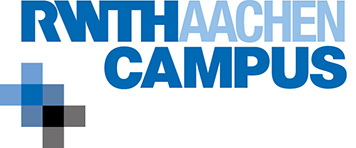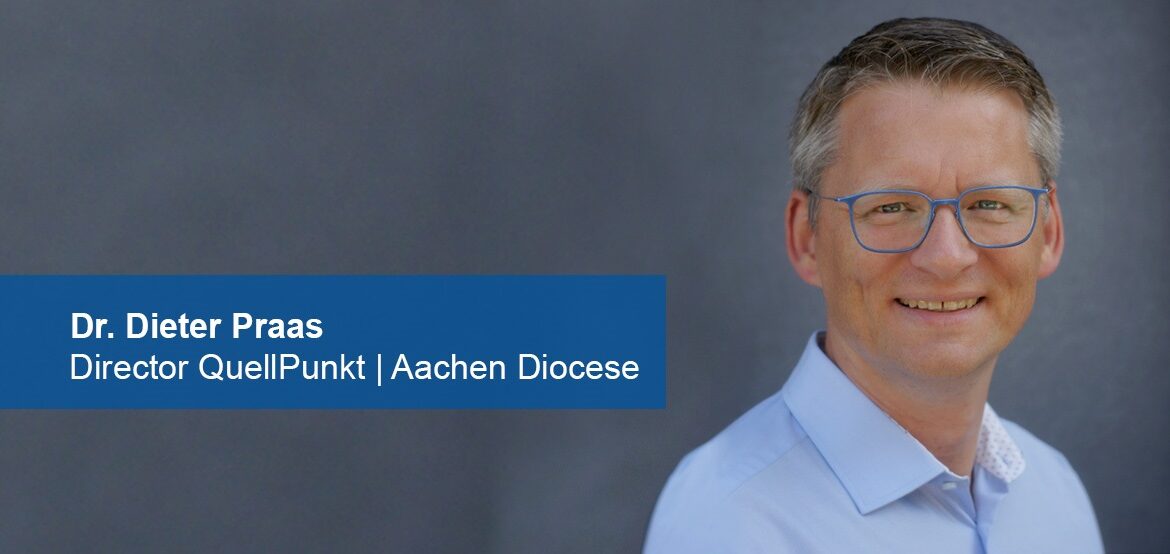13. April 2022
Interview with Dr. Dieter Praas | Director QuellPunkt | Aachen Diocese about the touchpoints of religion and science and their potentials
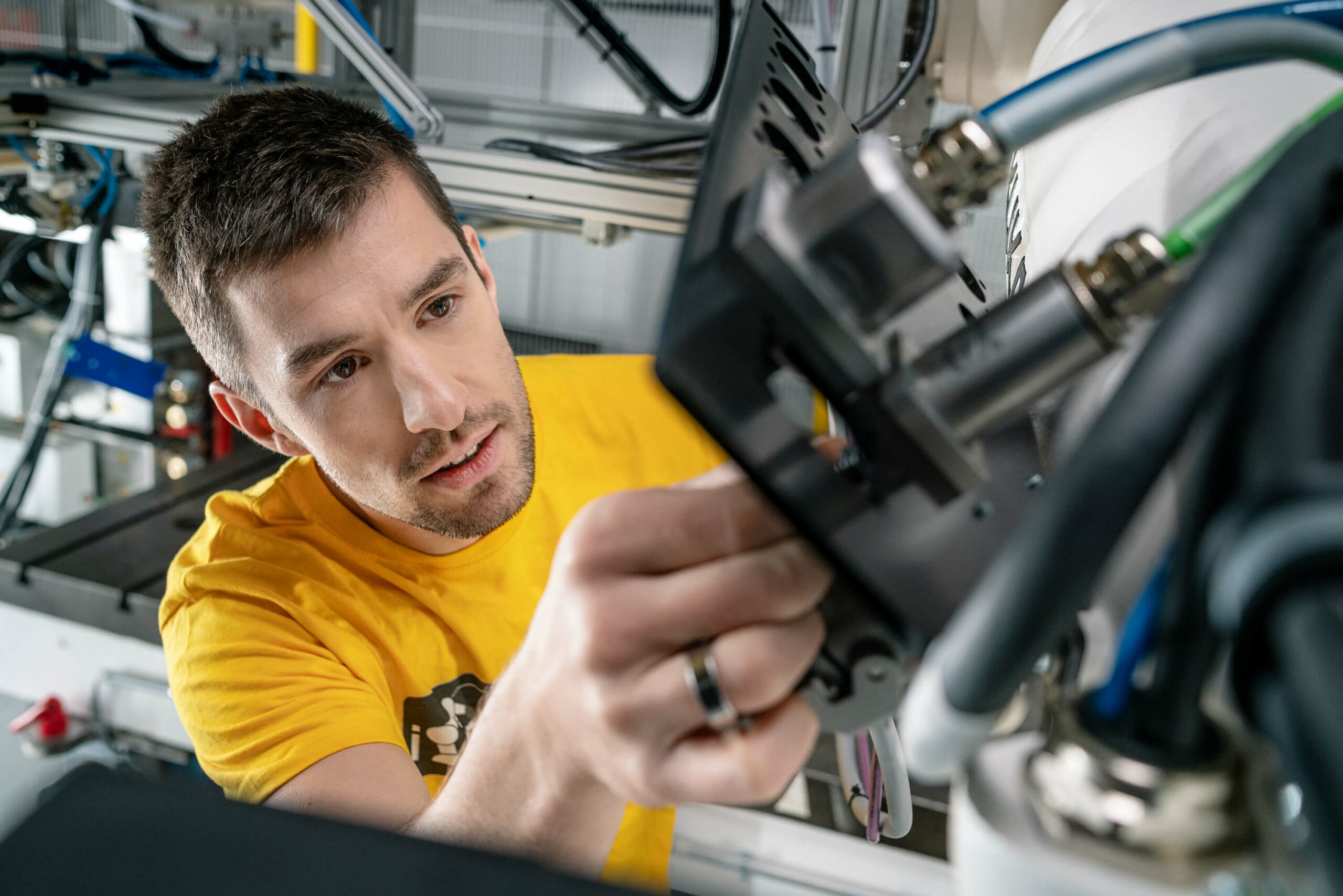
Campus GmbH/Moll
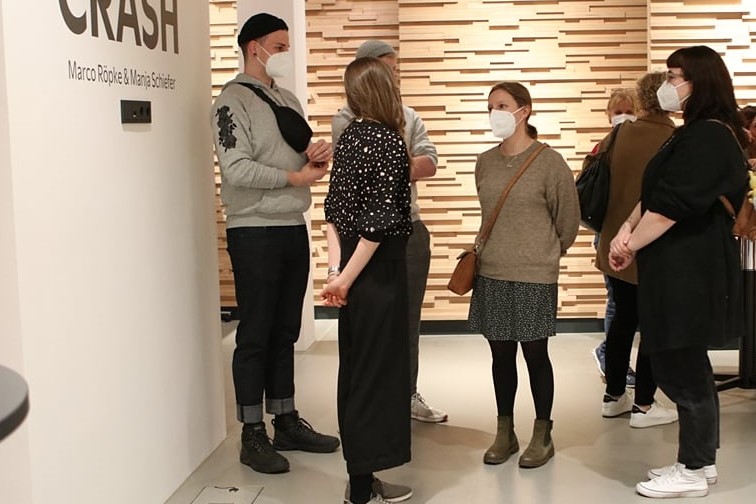
Thomas Langens
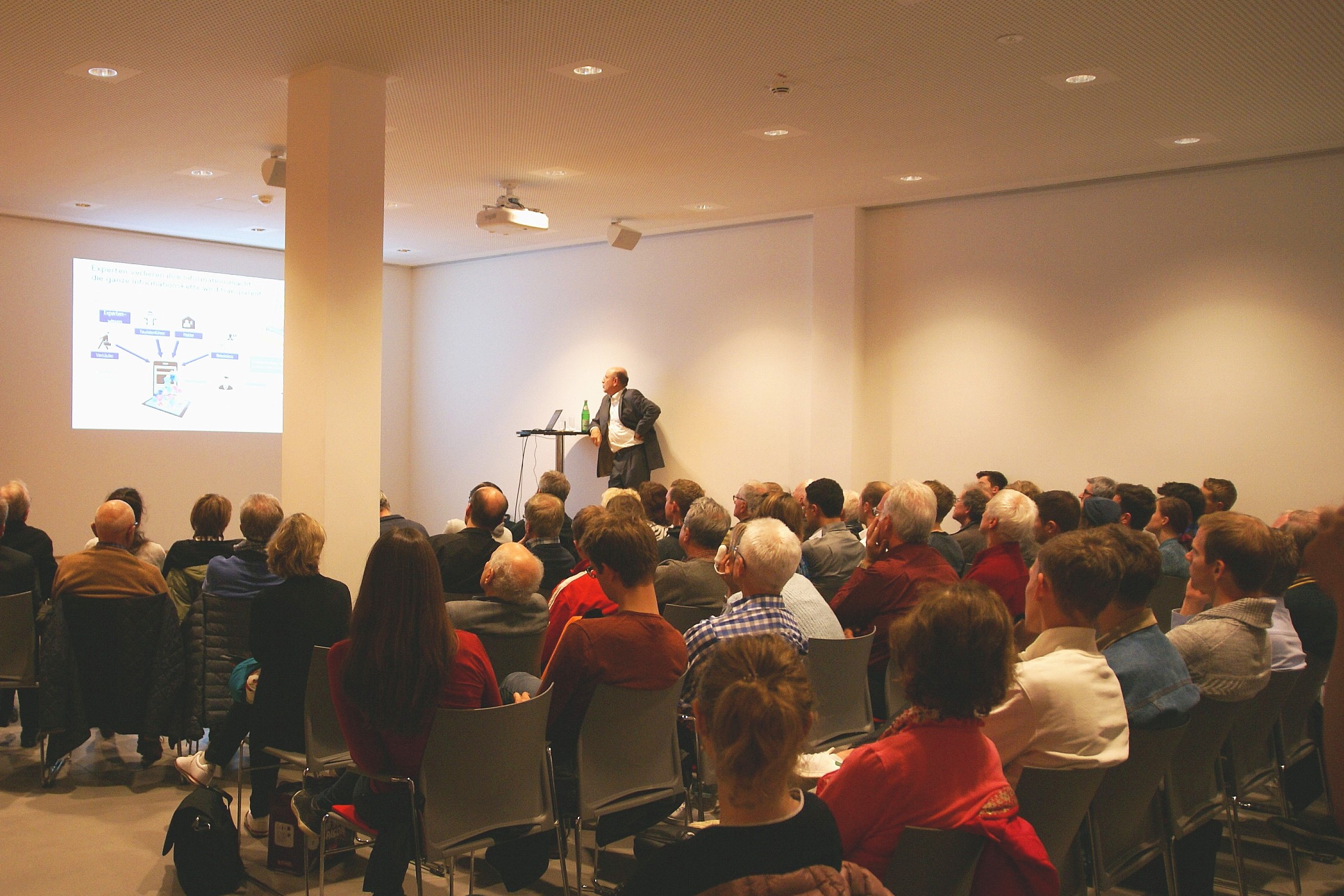
Hannah Döhmen
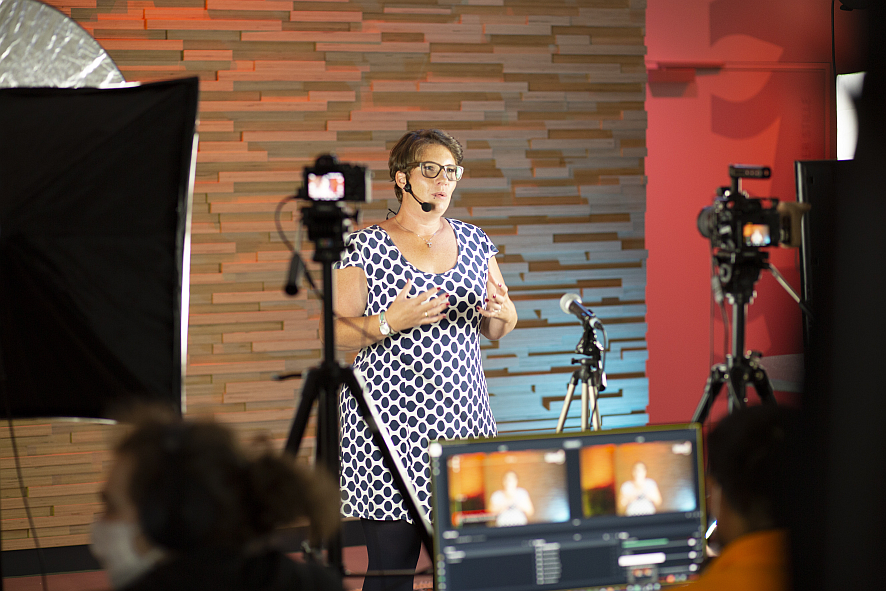
L. Schmied
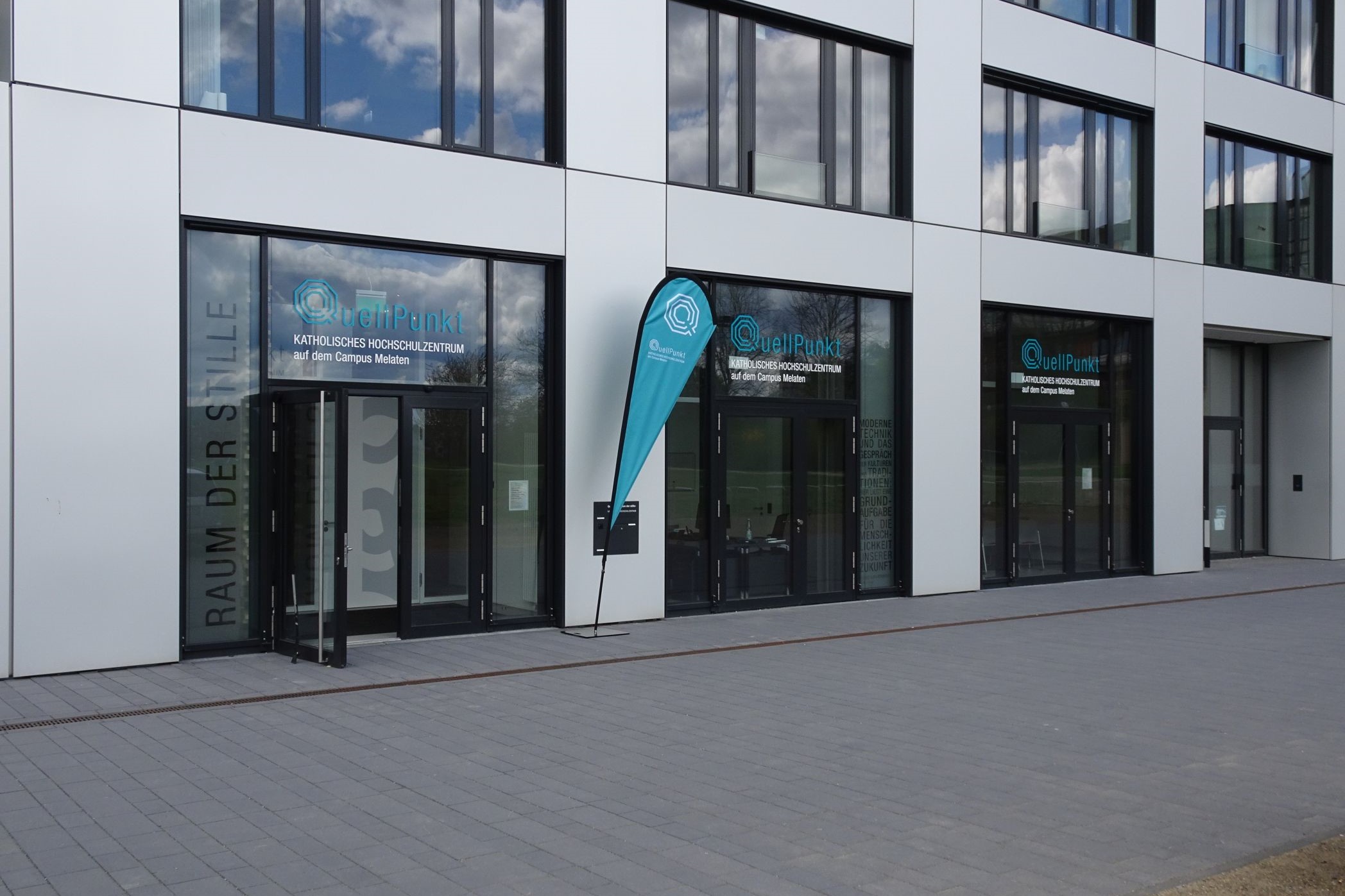
Dieter Praas
A place of peace, discussion, spirituality and reflection – where students, for example, have a space to study or artists to exhibit their works. And a place for readings, panel discussions and other workshops. One key topic at QuellPunkt: spiritual and physical health. “We offer various events on these topics. These may include headlines like ‘Ethics in Leadership’ or ‘Leadership and Spirituality’. We have had professors and institute directors here, who looked for solutions to doing their part in supporting the spiritual and physical well-being of their employees. In that context, QuellPunkt can be the forum to formulate and discuss these needs in the Production Engineering Cluster. I find that amazing”, says Praas.
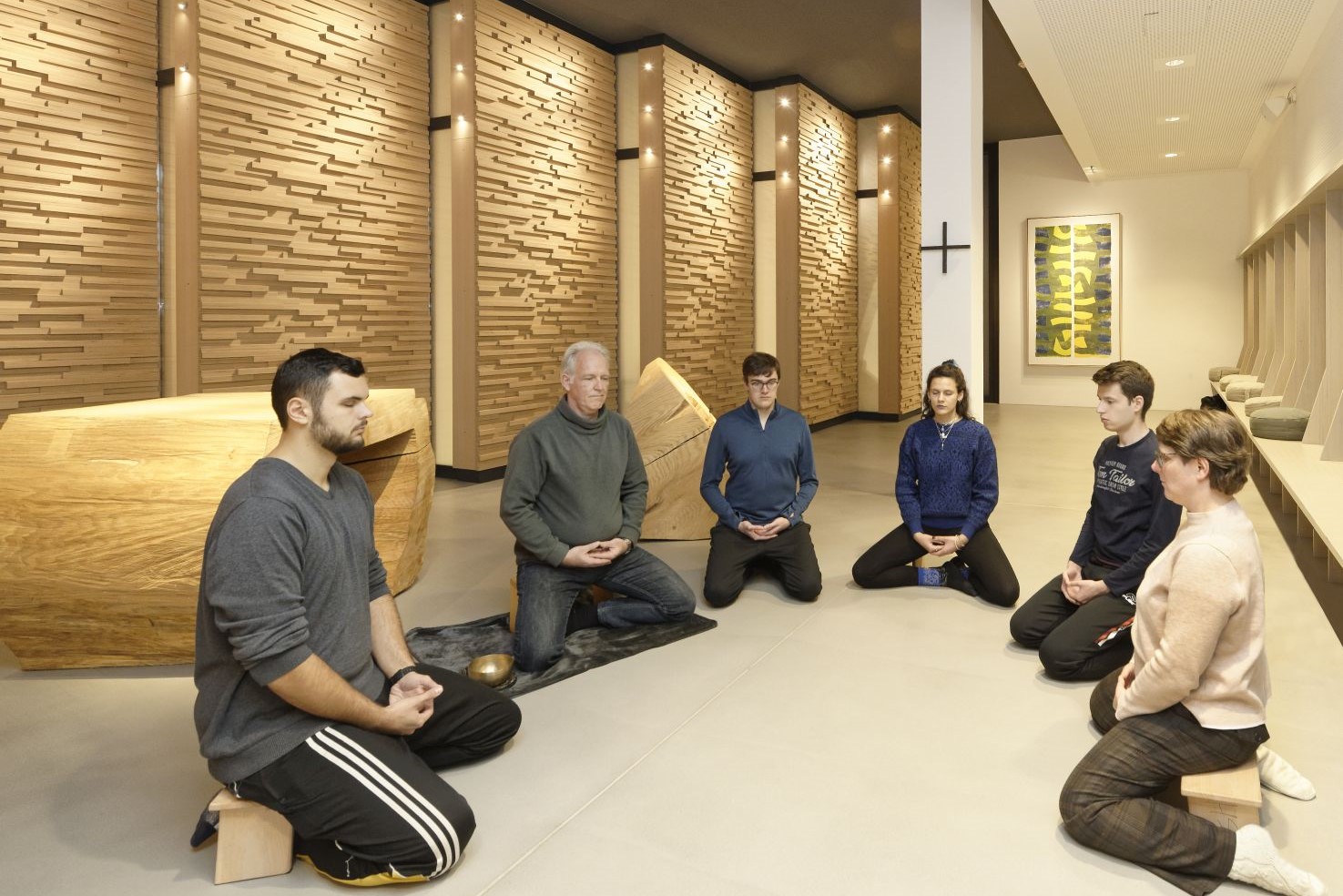
Peter Winandy
“The Production Engineering Cluster describes itself as highly dynamic and agile. The people here are very willing to perform and respond to the highest performance expectations. At the same time, society tends to worry much about work-life balance. Here at QuellPunkt, we may be in a position to make a small contribution to this work-life balance – for example, with the Room of Silence.” Praas is talking about a dedicated space, where people of all faiths can retreat for prayer, but also for meditation or a moment of silence – whenever they want. The Room of Silence is an otherworldly place on Campus Melaten. It is open to everyone, whatever their religion, their faith or non-faith. It is meant for reflection, for not thinking at all, for stress relief and for inspiration. “The shortest definition for religion is ‘disruption’. Disruption of routines, thought patterns, seemingly impossible logic. We all need a space to critically question these concepts. Many of our visitors have told me that they find this room very helpful”, says Praas. “I would therefore like to extend a warm invitation to all stakeholders on RWTH Aachen Campus to just drop by QuellPunkt whenever they feel like it.”

